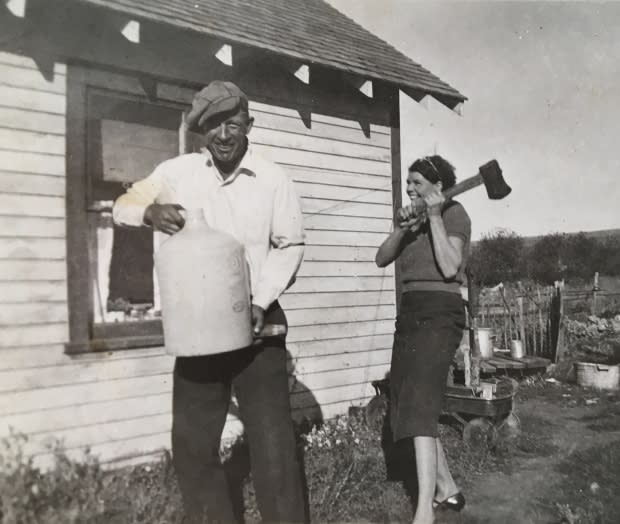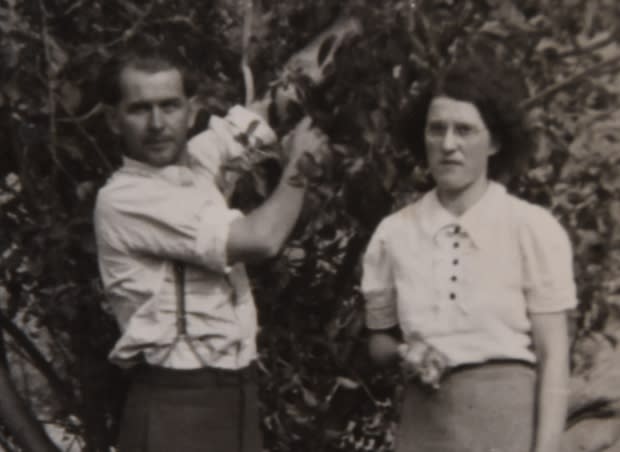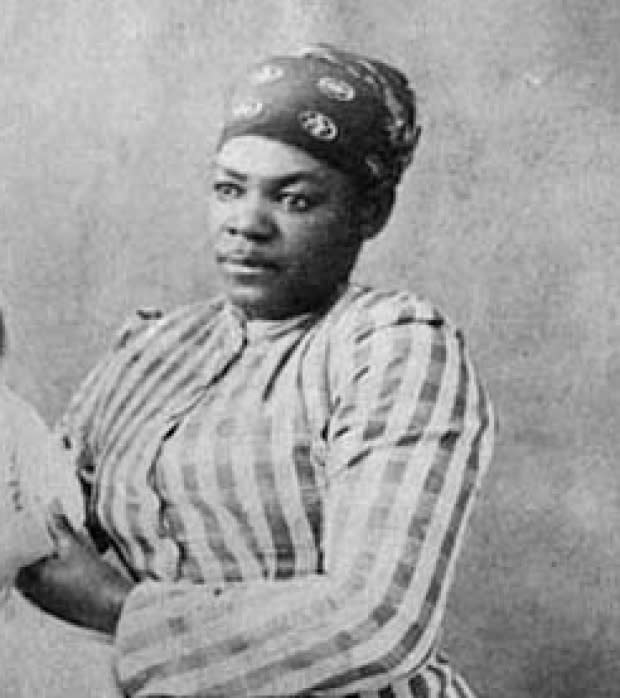The moonshine women of Alberta
It was an open secret in Marie Gauthier's family that Aunt Tillie made moonshine.
During the 1940s, there was a need for liquor in remote Waskatenau, Alta., about 100 kilometres northeast of Edmonton.
Tillie Lazowski kept herself and her farm from the brink of poverty by filling the need with her still, hidden away in the bush.
"She leapt right on it, an entrepreneur," Gauthier said.
Since she was young, Gauthier, a retired music teacher who owns Maridon Music in Spruce Grove, has fostered an interest in the odd comings and goings of her secretive aunt.
Lazowski never spoke openly of her time as a moonshiner, but the whole family knew.

In the 1960s, Lazowski moved to Edmonton, but kept exactly where a secret.
Until her death in the early 2000s, she always had Gauthier pick her up at a rendezvous spot near Park Memorial on 97th Street and 111th Avenue.
One day, around 1980, Lazowski requested a shovel and a ride to her old place in Waskatenau, which by then had a new owner.
Gauthier guessed, that like most people in the area, the farm's new owner likely had a shotgun hiding behind the door.
She agreed to drive on the condition that she wouldn't exit the car and if shots were fired she was out of there, with or without her aunt.
After a bunch of digging, Lazowski came back with a couple of old tobacco cans filled with cash. Gauthier isn't sure how the money the money had be made, and her aunt never said.
"I think it goes back to the moonshining days," Gauthier said, adding that Lazowski avoided banks as best she could.
Police suspicious
Lazowski never got caught, though police had their suspicions, Gauthier said.
Lazowski hid her still in the thick brush that covered the area and when a police officer came by she would "bat her eyes" at them, Gauthier said.
Most often, stories of moonshiners and rum-runners in small Alberta towns involve men.
Still, women involved in the illegal alcohol trade have seeped into local lore.

Kim Unrau, assistant archivist at the Esplanade Arts and Heritage Centre in Medicine Hat, researched one of these women for a small exhibit.
Molly Smith, a former American slave, sought greener pastures in Canada after emancipation, making herself a home in Medicine Hat in the early 1880s.
At the time, Alberta was part of the Northwest Territories which banned the sale of alcohol.
Smith would make trips down to Montana, where alcohol was legal, and smuggle the booze across the border before selling it to the men working on the Canadian Pacific Railway.
From 1883 to 1885, Smith brought up liquor from her contacts in Fort Benton, Mont., hiding it in the bush before carrying it around to the various work camps near the town.
According to Unrau, the story goes that Smith had a customized bustle and brazier in which she hid the contraband alcohol.
"[She] would have had some good business, because they would have been the only ones doing it," she said.

Shayna Hansen, co-owner of Hansen Distillery in Edmonton, says her grandmother was one of a number of moonshiners in her family.
Near Rimbey and Crestomere, Alta., just about anything was used, even tomato paste, to make moonshine as money was tight and alcohol expensive.
The family made moonshine from 1930 until just a few years ago when the recipe was passed on to Kris Sustrik, Hansen's husband and business partner.
"If it wasn't for my grandma, my grandpa and my dad, my husband probably never would have learned to moonshine, or had the interest," Hansen said.
South of the border, these stories are better told. Kelli Casias, a PhD student at the University of Montana, poured through countless newspaper articles in the course of writing her thesis on female moonshiners and bootleggers in her home state.
Montana and Alberta were culturally very similar back when moonshining and rum-running was a valid, though fraught, career move, Casias said.
Women were rarely searched, charged or prosecuted, unless they were repeat offenders or dealt in large quantities of alcohol.
"When females are bootlegging or moonshining, they really fall into two categories, Casias said. "They've been suppressed somehow and are trying to support themselves through it.
"Or you have the individual that becomes a rogue," she said.

